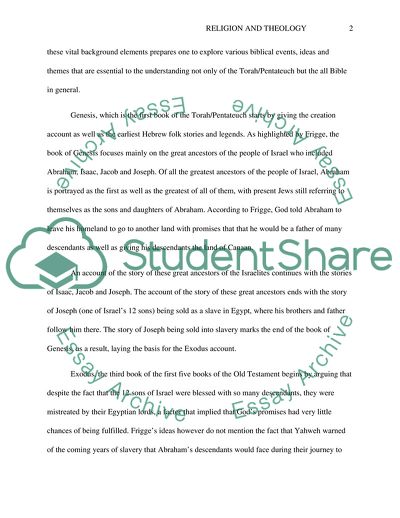Cite this document
(Frigges Ideas on the First Five Books of the Old Testament Essay Example | Topics and Well Written Essays - 1250 words, n.d.)
Frigges Ideas on the First Five Books of the Old Testament Essay Example | Topics and Well Written Essays - 1250 words. https://studentshare.org/religion-and-theology/1766448-exodus
Frigges Ideas on the First Five Books of the Old Testament Essay Example | Topics and Well Written Essays - 1250 words. https://studentshare.org/religion-and-theology/1766448-exodus
(Frigges Ideas on the First Five Books of the Old Testament Essay Example | Topics and Well Written Essays - 1250 Words)
Frigges Ideas on the First Five Books of the Old Testament Essay Example | Topics and Well Written Essays - 1250 Words. https://studentshare.org/religion-and-theology/1766448-exodus.
Frigges Ideas on the First Five Books of the Old Testament Essay Example | Topics and Well Written Essays - 1250 Words. https://studentshare.org/religion-and-theology/1766448-exodus.
“Frigges Ideas on the First Five Books of the Old Testament Essay Example | Topics and Well Written Essays - 1250 Words”. https://studentshare.org/religion-and-theology/1766448-exodus.


